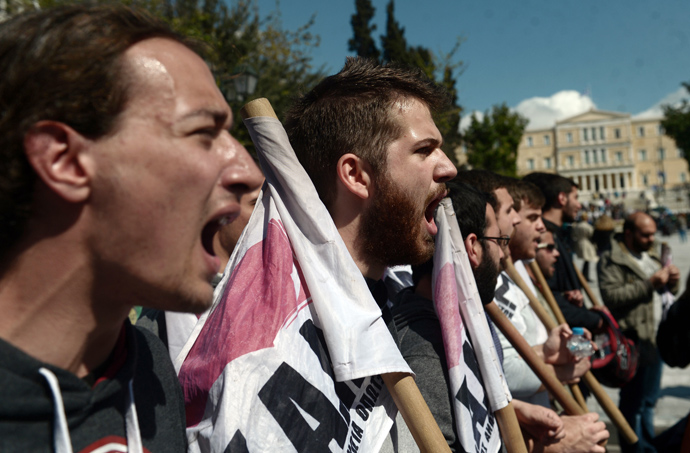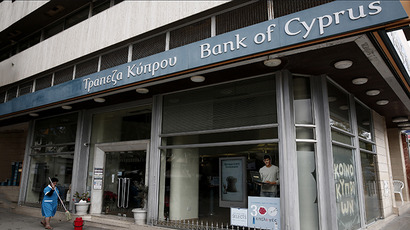Left out in cold: Crisis has Greeks foraging forest for heat source
Austerity measures and spiraling unemployment have left many Greeks without the means to pay for heating. In desperation some have taken to illegally chopping down firewood, damaging historic forests.
As winter heating costs have been reported as high as 2000 euro for oil and just 500 euro for wood, local resident Apostolis Alexiou told RT that he understands why more people are becoming involved in the illegal logging trade.
“They are forced to go cut wood illegally, because they have to pay all these taxes the government forces on us,” he told RT.
As the heating oil is harder and harder to afford, the thousand year old forests in Northern Greece are now under threat.
The local government is trying to cease the destruction of the forests, but also recognizes the severe economic hardships imposed on its citizens by the austerity measures. Currently Greece has the highest unemployment rate among the European countries that use the euro currency at more than 26 percent.
"These are ordinary people living in isolated villages and for the last two years they can’t afford heat and oil,” Vice-prefect of Kastoria region Dimitris Savopoulos told RT.
The forest guard is trying to stop the stealing of timber, but ironically, due to fuel shortages, they cannot afford to patrol the vast forest area.
“Because of the economic crisis we can’t afford enough fuel to patrol the area and stop this disaster,” a local forest guard told RT.
Plans to provide financial aid to help people with winter heating costs have been agreed, but to date no such funds have materialized.

In Athens the troika of creditors, the International Monetary Fund, the European Central Bank and the European Commission, resumed negotiations with Greek officials about the course of demanded austerity measures and reforms. The talks in Athens are due to focus on additional installments of bailout money. A consensus is expected to be reached in the beginning of April, ahead of the next summit meeting of euro zone finance ministers.
As the Greek villagers turn to the forests for their heating, the country’s Prime Minister Antonis Samaras says that the first signs of recovery are starting to appear. New government figures show that in March, for the first time since the economy started to implode three years ago, private-sector hiring’s outstripped layoffs, according to Samaras.
Anti-austerity strikes and protests across Greece came ahead of the talks between Greek and troika delegates. Tens of thousands of people were stranded as ferries and train services were brought to a standstill by a 24-hour strike on Wednesday. Greek unions have held dozens of strikes over the past three years, protesting severe public sector cuts.
In May 2010, in the wake of the rising government debt levels, Greece was given its first bailout loan on the condition that austerity measures be implemented. The cuts included reducing overall government employment , lowering public employees' wages, reducing pension benefits, raising property taxes and eliminating heating fuel subsidies. Though due to a worsening recession Greece has been given more bailouts over the years.














